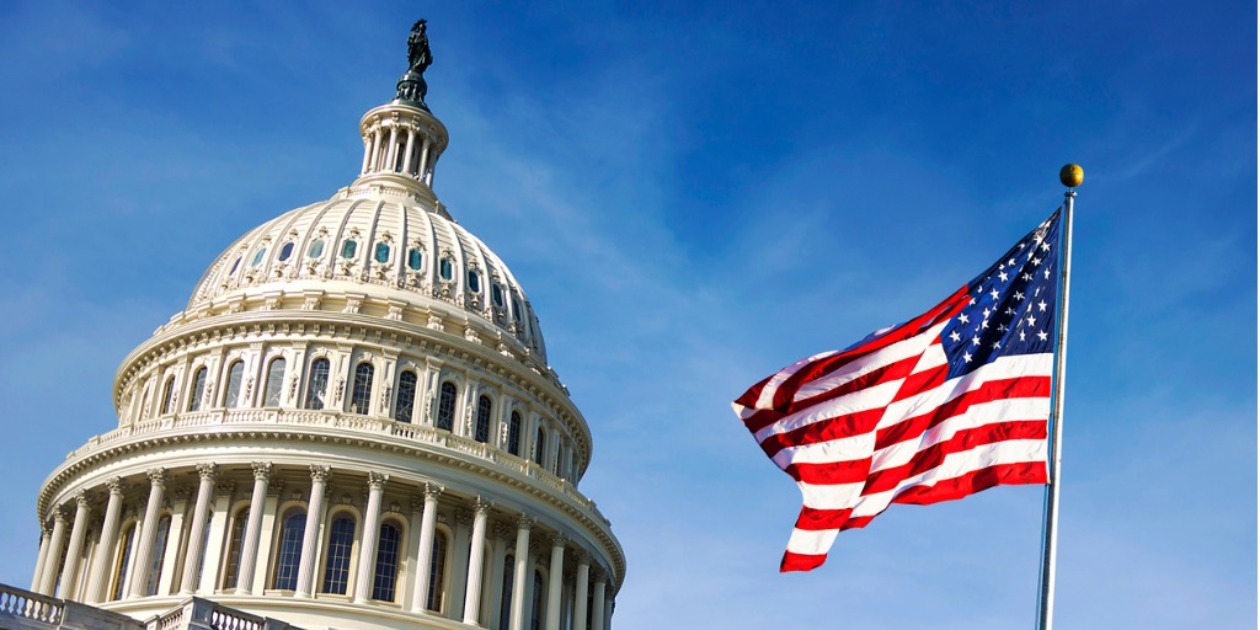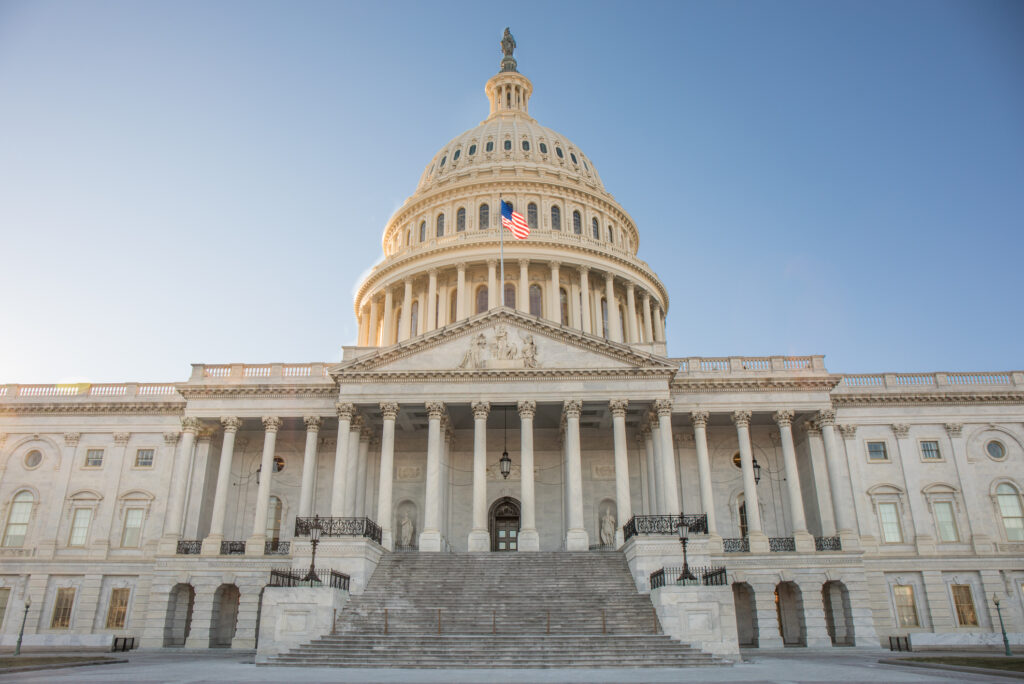2024 Hill Briefing: ABCs of Federal Child Care and Early Learning

WASHINGTON, D.C. – The First Five Years Fund (FFYF) hosted Congressional staff for its annual bipartisan “ABCs of Federal Child Care and Early Learning” briefing. The session focused on the importance of federal early learning and child care programs and the need for robust funding through the annual appropriations process.
Representative Ashley Hinson (R-IA) co-chair of the Bipartisan Pre-K and Child Care Caucus spoke about the need for bipartisan support for early and child care. Staffers also heard from a panel of experts from Iowa, Louisiana, Virginia, and North Carolina about the role federal programs play in helping families, employers, providers, and our economy thrive – and why approving significant funding for early learning and care programs through Congressional appropriations is so critical.
Below are excerpts and video clips from panelists’ testimonies, who spoke about the Child Care and Development Block Grant (CCDBG) program, Head Start and Early Head Start, and the Preschool Development Grant Birth through Five (PDG B-5):
Rep. Ashley Hinson (R-IA):
- “When I found out I was expecting my second baby I called my parents and then I called my daycare center in that order to say I’m going to need to secure another spot for my son and I don’t think it’s an uncommon story. For other working parents this is a real challenge.” Watch here.
- “This is not just a family issue, this is a workforce issue and it is a women’s issue. While out in my district I have heard from so many families and employers who say that one of the biggest challenges in addressing workforce shortages is ensuring that parents regardless of their zip code or their income level have access to child care that makes sense for their family.” Watch here.
- “Providers are having trouble recruiting and retaining workers. If we don’t have child care workers, we don’t have child care. They are the workforce behind the workforce and I don’t want to see parents having to make that choice between working or staying home because of the availability of those not only safe places to have kids but also learning opportunities for our next generation.” Watch here.
Lucas Hughes, CEO, YMCA of Newton, Iowa:
- “Newton is a hard-working, blue collar town where most families are enrolled in school free-reduced lunch program. Both parents are working overtime in order to stay working in our community. The YMCA has to acknowledge that CCDBG is instrumental to keeping them. The need is growing, and we need to have more support.” Watch here.
- “The Child Care and Development Block Grant otherwise known as “CCDBG” is a federal program that is not only vital, it’s imperative, to the success and sustainability of all child care programs across the country. Mine is no exception.” Watch here.
- “My ask to Congress is that you continue to educate yourselves on this program, stay connected with local leaders on this matter, and prioritize the funding of the Child Care and Development Block Grant because the impact is far greater than just keeping the child care centers afloat. You are keeping our workforce strong, employers well staffed, parents happy, and children healthy! The solution is that Congress must continue to invest greatly into the CCDBG. Yes, funding has increased every year and we are thankful for this, but this is just not enough when we see the demand outgrowing the funds available.” Watch here.
Timothy Magner, President, Shreveport, Louisiana Chamber of Commerce:
- “Child care challenges are business challenges. And child care challenges being faced by our businesses impact both today’s workforce and tomorrow’s.” Watch here.
- “Lack of access makes it hard on parents, which makes it hard on businesses. Parental absences cost Louisiana businesses $762 million annually. These absences have about a 1.3 billion impact on the Louisiana economy because of decreased purchasing power from lost income.” Watch here.
- “Access to high-quality child care is making a difference for tomorrow’s workforce.” Watch here.
Latisha Howze, Executive Director, Higher Horizons Head Start & Early Head Start, (Virginia):
- “I have 27 years of experience in early childhood education, and I am a former Head Start parent to a now successful 29 year old! … My story is a perfect example of what recent research confirms is Head Starts disruption of generational poverty. I want to say that again so it resonates. Head Start disrupts generational poverty. So I appear before you today with the strong personal understanding of the power of investing in people and increasing access to opportunities.” Watch here.
- “It troubles me that I am not able to pay our dedicated teachers a true living wage, let alone professional wage. As I enter the Higher Horizons buildings, it is like a gut punch knowing that many Hi-Ho staff are essentially the working poor. Knowing that the same low-income program they are charged with supporting, they could potentially qualify for. This is unsettling.” Watch here.
- “There is a saying that goes something like this – ‘who are we as human beings if we ignore the suffering of others?’ At Higher Horizons, we have made the commitment to serve. Will you commit to a bi-partisant agreement to prioritize, protect and expand federal funding to the Head Start program?” Watch here.
Ariel Ford, Director, Division of Child Development and Early Education, North Carolina Department of Health and Human Services:
- “As our job market tightens in North Carolina, child care is a critical need to make sure that we have the employees we need to run our state.” Watch here.
- “We have the preschool development grant which comes in and says ok but what could we be doing better. What’s that thing that is you could just make that better it would make everything work more efficiently.” Watch here.
- “We need this coordinated effort, making sure families are served and making sure that our system is strong and modern to keep everything running smoothly. Our families deserve a well operating, efficient system.” Watch here.
Mindy Godding, Small Business Owner, Abundance Organizing:
- “We frequently have young women who join our team before they start a family – and then leave once they start a family because they unfortunately can’t earn enough as it would cost them to pay for a child care provider.” Watch here.
Sarah Rubinfield, Managing Director, Government Affairs, First Five Years Fund:
- “The bottom line right now, American families with young children are in urgent need of support, especially when it comes to child care. Too many families who need it, simply can’t find it. And if they can find it, they are often stuck on long waitlists. If they do finally secure a spot, many don’t know how they are going to afford the price tag that comes along with it. This leads to a lot of stressed out families, children left with uncertainty, providers struggling to keep their doors open, while employers are left without a reliable workforce. It doesn’t need to be this way.” Watch here.
- “FYFF has a long history of working with members on both sides of the aisle who support early learning and child care programs. These programs, including Head Start and Early Head Start, Preschool Development Grant Birth through Five (PDG B-5), and the Child Care and Development Block Grant Program benefit families in every state and congressional district and serve as the foundation for America’s child care. However, still today, these programs need investment, prioritization, and support. We are so Grateful for the long-standing bi-partisan support we have seen for these programs, and as FY25 gets underway we look to all of you to continue the support for working families, young children, and our economy.” Watch here.
Federal child care programs benefit families, businesses, and local economies in all 50 states. But at current investment levels, federal child care programs only reach a fraction of income-eligible families. Right now, Democratic and Republican lawmakers are circulating “Dear Colleague” letters on Capitol Hill, offering members of Congress an opportunity to support increased appropriations funding for the federal early learning and care programs. FY2025 “Dear Colleague” letters can be found here.
The briefing was co-hosted by the Goldman Sachs 10,000 Small Businesses Voices, National Head Start Association, U.S. Chamber of Commerce Foundation, and YMCA of the USA.
Subscribe to FFYF First Look
Every morning, FFYF reports on the latest child care & early learning news from across the country. Subscribe and take 5 minutes to know what's happening in early childhood education.



